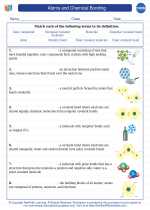Power in Chemistry
Power in chemistry refers to the rate at which work is done or energy is transferred. In the context of chemical reactions, power is often related to reaction rates and the amount of energy transferred during the reaction.
Understanding Power
Power can be defined as the amount of work done or energy transferred per unit of time. In the context of chemistry, power is often used to describe the rate of a chemical reaction or the rate at which energy is transferred in a system.
Calculating Power
The formula for calculating power is:
Where:
Power is measured in watts (W)
Work is measured in joules (J)
Time is measured in seconds (s)
Example Problem
If a chemical reaction releases 1000 joules of energy in 10 seconds, what is the power of the reaction?
Power = 1000 J / 10 s = 100 W
So, the power of the reaction is 100 watts.
Applications of Power in Chemistry
Understanding the power of chemical reactions is important in various applications, such as designing industrial processes, optimizing reaction conditions, and developing new materials with specific properties.
Study Tips
- Understand the concept of power and how it relates to work and energy transfer.
- Practice using the power formula with different examples to strengthen your understanding.
- Explore real-world applications of power in chemistry to appreciate its significance in various industries.
- Review and understand the units of measurement for power, work, and time.
- Seek additional resources such as textbooks, online tutorials, and practice problems to reinforce your knowledge of power in chemistry.
By mastering the concept of power in chemistry, you will be better equipped to analyze and interpret the dynamic processes that occur in chemical reactions.
[Power] Related Worksheets and Study Guides:
.◂Chemistry Worksheets and Study Guides High School. Atoms and Chemical Bonding
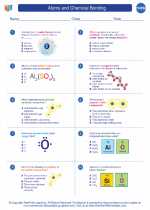
 Worksheet/Answer key
Worksheet/Answer key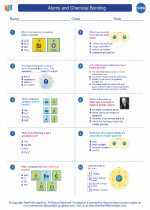
 Worksheet/Answer key
Worksheet/Answer key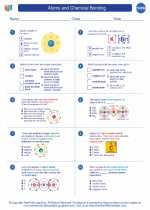
 Vocabulary/Answer key
Vocabulary/Answer key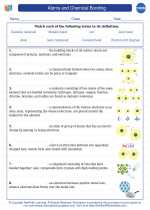
 Vocabulary/Answer key
Vocabulary/Answer key